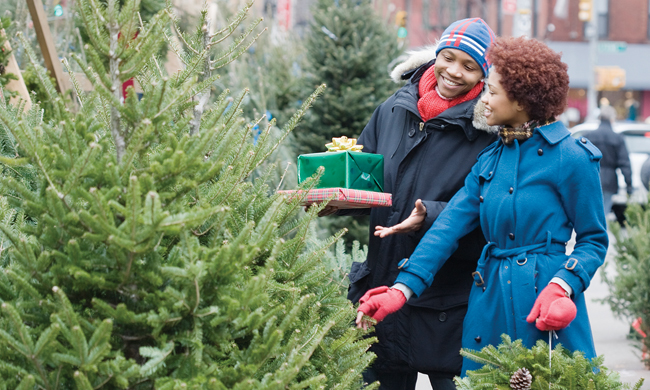Pests Might be Hiding on Your Christmas Tree
Nov 06, 2017 02:36AM ● By Family Features

There could be more than just presents hiding beneath your Christmas tree this year. After all, “’tis the season for wintertime pest infestations.”
This holiday season, be on the lookout for aphids, which are ant-sized insects that can spread more than 150 different plant viruses. Although harmless to humans, these pests can be formidable foes to many types of vegetation, including tomatoes, cucumbers and rose bushes.
While aphids are often associated with outdoor gardens, during the winter months they can make a home inside by hitching a ride aboard foliage, shrubbery and, most commonly, Christmas trees. Once inside the warmer air of your home, these pests believe it’s spring and begin rapidly reproducing.
Knowing how to identify and prevent aphids with these tips from Orkin Entomologist Glen Ramsey can help you protect your home, and Christmas tree, this holiday season.
Identify the Pest
Although aphids are small, they are usually visible to the naked eye. When looking for aphids, look for soft-bodied insects with long legs and antennae. These insects vary in color, ranging from green to red or black, but all share a distinctive, pear-like shape and tend to hang out in dense groups alongside Christmas tree trunks or plant stems.
Look for Evidence
Aphids feed on plant juices, attacking leaves, flowers, stems and roots. When aphids feed, they secrete a thick, sugary liquid called honeydew. Oftentimes, honeydew results in a fungal growth known as sooty mold. This mold can give branches and leaves a speckled, black appearance.
Prevent the Problem
While looking for Christmas trees, ask the retailer if the firs have been previously inspected for aphids. Before loading the tree into your vehicle, inspect the branches and shake the tree vigorously to ensure no aphids are present. The tree may lose a few needles, but this could prevent an infestation. In addition, releasing lady bugs or lacewings, which are natural predators, in your garden may help reduce aphid populations.
Treat Any Issues
Although aphids won’t cause harm to your family, they can certainly be a bit of a pain. If you spot a few aphids, simply spray them off with water or vacuum them up. However, if you notice a full-fledged infestation, you may need to cut off the infested branches or remove the tree from your home entirely.
To keep pests out of your home this holiday season, work with a pest management provider to create a prevention and treatment plan unique to your household. For more pest prevention tips or to schedule a pest inspection, visit Orkin.com.
Photo courtesy of Getty Images
